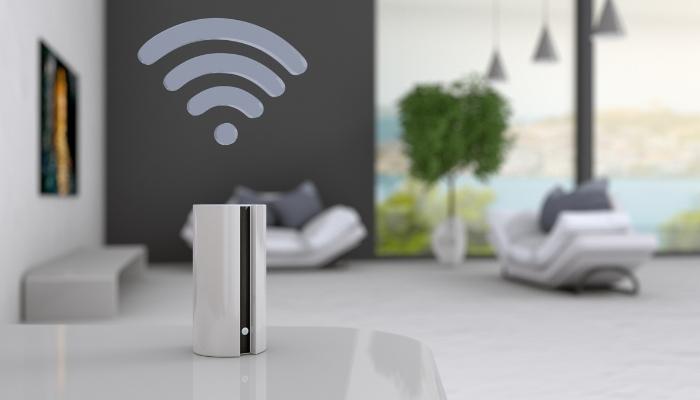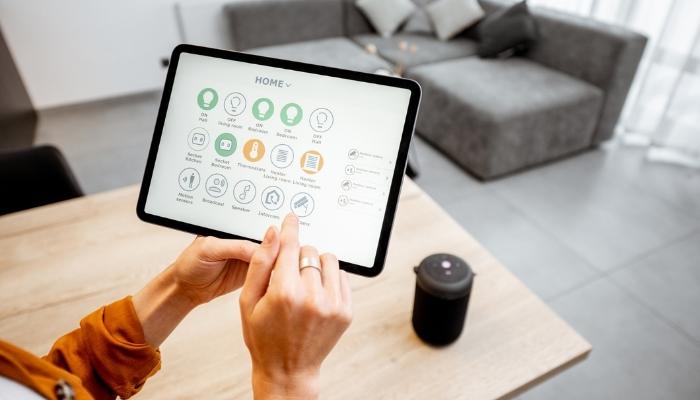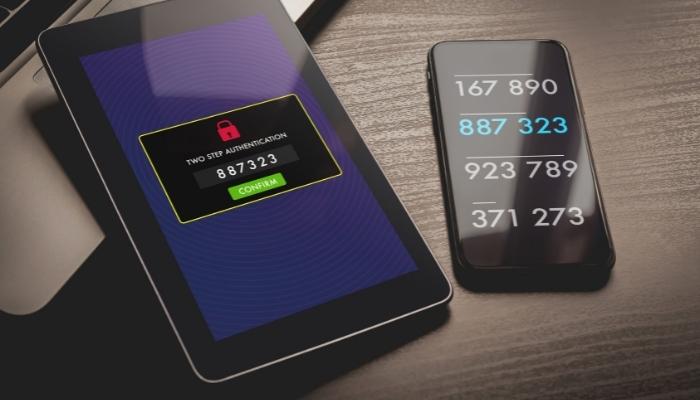Voice assistants are a marvel of convenience — they handle so many things. They can tell you the weather, order food, turn off the lights, play music, read emails, access your calendar, and scroll through your contacts.
But is this technological marvel always listening? In a nutshell, yes, it could be eavesdropping on your conversations! Not to mention it has access to your various accounts and passwords, so if someone hacks it, your information is vulnerable.
However, that doesn't mean you have to stop using voice-assisted technology — you just need to beef up your security. But you don't have to do it yourself; we'll show you what increasing your security looks like and why you should trust your integrators to do the job for you!
When is it Listening?

Voice assistants are designed to listen for their wake word constantly — like, "Hey Siri" or "Ok Google." Once they hear it, they can spring into action and perform the task you ask of them. However, sometimes they don't hear the wake word correctly and start recording your conversation without you realizing it.
And even when you do use it correctly, it records everything you say every time you use it. So, if you've ever told it a password, credit card information, or online banking information, your voice assistant has that information stored in its recordings — oops! But don't worry; there are ways to safeguard this:
- See when or how it stores data.
- Set up alerts for when the voice assistant is listening.
- Go into the app or your account and delete old or sensitive recordings.
- Mute or turn off voice assistant after every use, so it doesn't turn on when you don't want it to.
Pro Tip: Avoid complications by not letting your passwords, online banking info, or credit card details be recorded.
Settings

Speaking of settings, knowing how each one works and what it does is essential when using voice assistant technology. When you set up your voice assistant, it will ask you questions, like whether you want it to respond to anyone who speaks its wake word or just you. If you choose "just me," your voice assistant will require authentication before it takes action — even if someone says its wake word.
But there are other measures you can take, like having it auto-delete recordings. And most voice assistants have their own security measures, but some privacy policies are tricky. However, since there are so many default settings to configure, you're better off contacting your local integrator. These experts know how to set up your voice-assistant software so that it is more secure and come up with more secure solutions.
Login
There are many ways to safeguard voice assistants, but securing a strong password is an excellent place to start. This is true of any account, but since voice assistants deal with sensitive information AND a truckload of connected apps, devices, and automated settings, you need to be extra careful with your password.
Make sure it is a minimum of twelve characters, a mix of upper and lower case letters, numbers, and symbols. And don't reuse passwords from other accounts; this way, if a hacker does manage to get into your other systems and try using the same password, they won't be able to get into your voice assistant.
What's Connected?
Your voice assistant is connected to your accounts, apps, and countless devices, such as your smart lights, smart locks, smart shades, smart thermostats, and various automation. It can get confusing, and while you can try adding a personal passcode to access your email, use a PIN to control who buys what, and only trust 3rd party apps from reputed publishes, it might not be enough. Some smart bulb and smart lock apps are vulnerable enough to allow hackers into your entire system!
With a custom integrator, you don't have to worry about that; They'll seamlessly connect the apps and devices you need with the safest settings and software. They'll know which smart devices, brands, and apps are more reputable and the least vulnerable to attacks, so your system is safe to use from the start!
Pro Tip: As a precaution, never link to sensitive accounts or keep credit cards saved on any connected app or device.
Multi-Factor Authentication

One of the best ways to protect your accounts and voice-assisted software is to enable multi-factor authentication (also called two-factor or two-step authentication). This adds another layer of security to your account, which usually requires an additional code sent to an email account or phone. So, even if someone does manage to hack into your voice assistant and get your password, they won't be able to log into your accounts without that second piece of information.
Most voice assistants should have the option of multi-factor authentication, but if for some reason it doesn't, or you can't find it, your custom integrator can help set it up.
Secure Router/Wi-Fi
Another way to protect your accounts is to ensure that your router and Wi-Fi are secure, since if someone can access your router, they can potentially access all your network devices — including your voice assistant and smart devices! To protect against this, you should make sure that your router is password-protected and that you're using a strong encryption protocol (which scrambles the information sent from your network) like WPA3 or WPA2 and turn off settings like "remote management." However, this is usually something your custom integrator can set up along with your voice assistant and smart automation system.
You should also ensure that your Wi-Fi network is hidden or includes a guest network. If your network is hidden, they can't connect to it and gain access to your devices. But if you provide a guest network, fewer people will have the password to your primary network, and you'll also prevent malware from getting to your main network with connected devices.
At Your Command

Voice assistants are convenient, but they also come with some risks. By taking the time to understand those risks and how to protect against them, you can seamlessly use your voice assistants with your smart devices and home automation without worry. And at Automation Design & Entertainment, we'll help make your smart home automation even more secure right from the beginning!
So don't wait; contact us today to set up a consultation appointment. You'll have your home at your every command in no time!